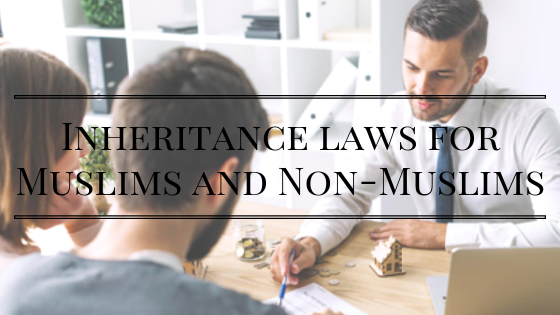
We often hear disputes after the death of family members about inheritance and properties distribution. Mostly because the disputes happened because there were no will and when things happened, it will take about two to five years or more depending on the complexity of case to get it resolved. Also, if there is financial recession, it can significantly affect the value of your real estates like Damansara Damai or Wangsa Maju.
Certain asset’s value might depreciate by the time legal ownership is transferred to your loved ones especially for those time-sensitive assets. Most of us know we should write a will but we just never seem to be able to do so. There are couple of reasons you probably can’t find the time to do it or you still think you are too young to do it, you have assets that’s too little to be significant while some of us might be afraid to think about death.
What happens to your possessions when you die without leaving a will?
Have you ever ask yourself if you should pass away without leaving a will? Because if you do, your death will be classified as ‘intestate’. In layman terms, you’ve died without leaving instructions about who should receive the amount of your estate(s). This consists of your savings in all of your bank accounts, properties and any other assets that you’ve owned at the time of your death except for Employment Provident Fund (EPF) or insurance policies. The remaining amount in the accounts will go to whoever you have nominated in your respected EPF account and insurance policies as they are governed under different act with set of laws passed by parliament. When it happens, the intestacy laws will determine how your estates are distributed.
In Malaysia, Muslim and non-Muslims are governed under different sets of inheritance laws.
For Muslims:
- All your estates will be frozen until the case is settled.
- Your family needs to apply for the Faraid certificate from the Shariah Court that contains the information on the value of the estate. The names of the eligible beneficiaries and the proportions of each of the beneficiaries. The process will usually take 5 working days.
- All the Quranic Heirs must have a mutual agreement to choose the same Administrator. It is required to be in written form and verified by the Magistrate / Commissioner of Oaths.
- Your wealth will be distributed based on Shariah Law. The process of wealth distribution is similar when you have a legal Wasiat. With the priority given to the provisions of your funeral expenses which is followed by the outstanding payment or debts which includes zakat, uncompleted hajj and Nazar.
- If beneficiaries are below 18 years of age or are disabled, their share will be deposited in the Trust Account at Amanah Raya and may be claimed when they reach the age of 18 or the age agreed in the Deed of Trust.
- However, if you do not have any living family member and none is claiming your estates, it will all be given to the Baitumal.
For Non-Muslims:
- All of your estates will be frozen until the case is all settled.
- An administrator must be appointed among the family members. All family members who are involved by signing the Renunciation of Administration letter, to be witnessed by the Magistrate/Commissioner of Oaths will need to make decisions.
- When you have a valid will, the wealth distribution is the same process. The priority will be given to the provision of your funeral expenses. Then, the provision shall be made to the creditors/outstanding debts. The remaining of your estates will go to the beneficiaries based on Distribution Act 1958 (amended in 1977) for West Malaysia and Sarawak while the Inestate Succession Ordinance 1968 is used for Sabah.
- Court may appoint guardian for your children who are still minors (children below 18 years old). This doesn’t mean that they will have total wealth control. The guardian still need to obtain the court’s approval each time he/she intends to withdraw or use the your money for the cost of raising and education of your children.
- Beneficiaries will have to apply to the High Court for Letters of Administration (LA) before your wealth distribution. Depending on the asset’s value, they can also apply for the LA at the District Land Administrator office or Amanah Rakyat Berhad. Plus, the administrator will need to find two sureties who can guarantee the same value of assets as yours.

